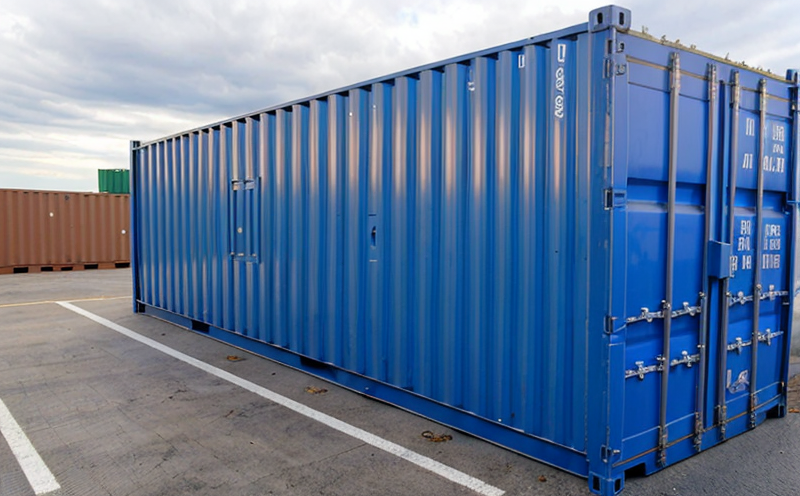ISO 22897 Heavy Metal Release Testing of Plastic Storage Plastics
The ISO 22897 standard is a critical tool in ensuring the safety and quality of plastic storage containers. This test evaluates the potential release of heavy metals from plastic materials, which can leach into stored products like food, beverages, or chemicals over time.
Heavy metal contamination is particularly concerning as even trace amounts can pose significant health risks when ingested or absorbed through contact with stored products. Compliance with ISO 22897 not only ensures product safety but also enhances brand reputation and trust among consumers.
The testing process involves several key steps, including the preparation of the storage containers for testing, the selection of appropriate leaching agents that mimic real-world conditions, and the analysis of extracted heavy metals using advanced analytical techniques. The standard specifies the use of specific leaching solutions and a defined incubation period to simulate prolonged contact with stored products.
The test results are crucial in determining whether the plastic materials meet regulatory requirements set by authorities such as FDA (Food and Drug Administration) or EU standards like Regulation EC 10/2011. Compliance ensures that storage containers do not pose a risk of heavy metal contamination, thereby protecting consumer health.
Our laboratory adheres strictly to the ISO 22897 protocol, ensuring accurate and reliable testing results. We employ experienced technicians and state-of-the-art equipment to perform this intricate test with precision. Our methodology includes thorough specimen preparation, controlled leaching conditions, and rigorous analytical procedures to identify even trace amounts of heavy metals.
The importance of this test cannot be overstated in the context of polymer & plastics testing. It is a vital component in ensuring that storage containers are safe for their intended use. By adhering to ISO 22897, we contribute significantly to maintaining high standards of product safety and compliance.
- Preparation involves thorough cleaning and drying of the plastic specimens before testing.
- The leaching solution mimics real-world conditions for a defined period.
- Analytical techniques include ICP-MS (Inductively Coupled Plasma Mass Spectrometry) to detect heavy metals.
- Results are reported in compliance with ISO standards, ensuring accurate and reliable data.
Scope and Methodology
The scope of the ISO 22897 test is to evaluate the release of heavy metals from plastic storage containers under specified conditions. This includes testing various types of polymers commonly used in food, beverage, or chemical storage applications.
The methodology involves several key steps:
- Specimen Preparation: Clean and dry the plastic specimens before testing.
- Leaching Solution Selection: Use solutions that mimic real-world conditions, such as water or alcohol.
- Incubation Period: Allow the leaching to occur under controlled conditions for a specified period.
- Analytical Techniques: Utilize advanced analytical methods like ICP-MS to detect and quantify heavy metals.
The results of this testing are critical in ensuring that storage containers do not contribute to the contamination of stored products with harmful heavy metals. Compliance ensures product safety and meets regulatory requirements set by authorities worldwide.
Why Choose This Test
The ISO 22897 test is essential for ensuring that plastic storage containers do not release harmful levels of heavy metals into stored products. This can prevent contamination and protect consumer health.
Compliance with this standard enhances brand reputation and trust among consumers, as it demonstrates a commitment to product safety and quality. It also ensures adherence to regulatory requirements set by authorities like the FDA or EU standards.
The test results provide valuable insights into the potential risks associated with storage containers, allowing manufacturers to make informed decisions about material selection and processing methods.
By choosing this test, you can ensure that your products meet the highest safety standards and comply with international regulations. This not only protects consumer health but also helps maintain a positive brand image in the market.





